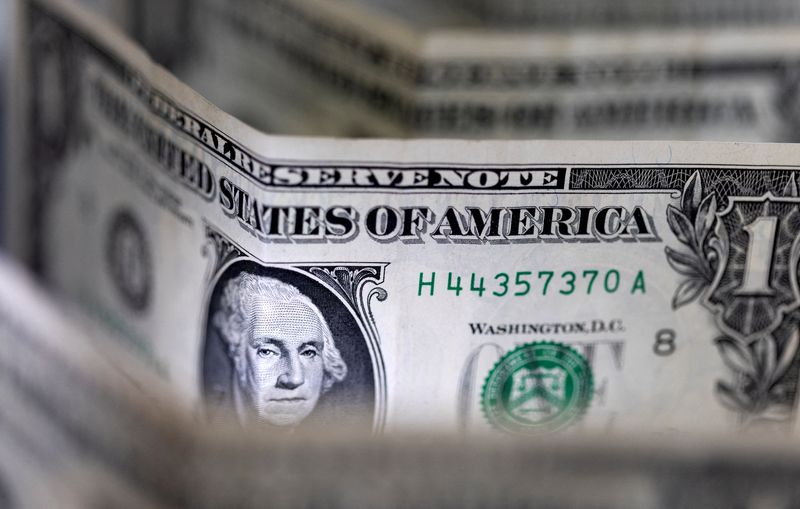Dollar strengthens after Trump shooting; Asia FX weakens
Most Asian currencies moved little on Monday, while the dollar caught some safe haven bids after the attempted assassination of former U.S. President Donald Trump over the weekend.
Regional trading volumes were muted on account of a Japanese market holiday. The yen weakened slightly against the dollar, keeping markets on edge over any potential government intervention.
Asian currencies had advanced sharply against the dollar last week amid increased optimism over interest rate cuts by the Federal Reserve. While the dollar retook some ground on Monday, it was nursing steep losses over the past two weeks.
Weak gross domestic product data from China somewhat dented sentiment towards Asian markets, while the yuan also weakened after the reading. Dollar firms as Trump assassination attempt favors safe havens
The dollar index and dollar index futures both rose 0.1% in Asian trade, recovering from an over one-month low hit last week.
The greenback caught some bids after a shooting at a Trump rally in Pennsylvania, where the former President shot in the ear. But Trump was seen urging his supporters to “fight!” after the shooting.
Trump is now set to appear at the 2024 Republican convention later this week, and is likely to be nominated as the party’s frontrunner for the presidential race.
Analysts said that the shooting increased his chances of a victory over Joe Biden- a scenario that could eventually favor the dollar, given that Trump has signaled his intent to enact more protectionist trade policies.
The dollar is also set to take more cues from an address by Fed Chair Jerome Powell later this week. Japanese yen flat, intervention in focus
The Japanese yen steadied in thin trade on Monday, with the USDJPY pair hovering around the 158 yen level.
The yen had firmed sharply against the dollar late last week, sparking speculation over whether the move was caused by government intervention or by a short squeeze on bets against the yen. The yen also recovered from its weakest level in 38 years.
But despite a recent recovery, the yen was still nursing steep losses against the dollar over the past two years. Chinese yuan slips on weak Q2 GDP
The Chinese yuan weakened on Monday, with the USDCNY pair falling 0.2% and coming close to eight-month highs.
China’s economy grew less than expected at 4.7% in the second quarter, gross domestic product data showed, amid increasing headwinds from weak consumer spending.
The reading ramped up concerns over a slowing economic recovery in the country, especially as it grapples with slowing consumer spending.
Broader Asian currencies mostly weakened on Monday. The Australian dollar’s AUDUSD pair fell 0.1%, while the South Korean won’s USDKRW pair rose 0.7%.
The Singapore dollar’s USDSGD pair rose 0.1%, while the Indian rupee’s USDINR pair remained close to record highs.
Source: Investing.com
